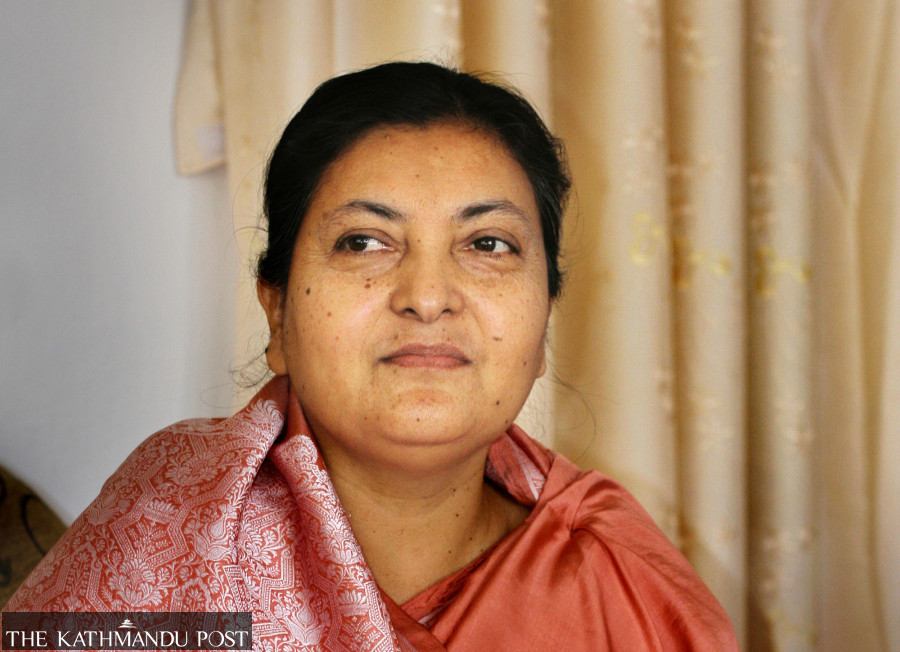Editorial
Democratic breakdown
The chase for power has made each individual wielding authority turn against democratic institutions.
In their book How Democracies Die, Steven Levitsky and Daniel Ziblatt write, “Democracies work best—and survive longer—where constitutions are reinforced by unwritten democratic norms.” Such norms work best where the institutions that are supposed to strengthen democracy function well. In Nepal, however, we see a continuous failure of these institutions to honour even the norms laid down in the constitution. The years after the promulgation of the new constitution in 2015, particularly the past five years after the first Parliament came into being, have been marked by a continuous assault on democratic institutions. Seemingly no state institution is free of crisis. The hope created by adopting federal democratic republicanism, especially after the promulgation of the constitution, continues to be dashed a bit every day.
President Bidya Devi Bhandari's "inaction" on the bill to amend the Citizenship Act—leading to the lapse of the 15-day deadline by when she should have authenticated it–has brought about constitutional chaos that will for long roil the body politic. This, just a day after the President celebrated the seventh anniversary of the promulgation of the constitution and distributed awards and pardons to hundreds of individuals. The contradiction in Bhandari's words and actions were evident in a matter of a couple of days, but it was not a one-off incident. Her opinions on similar issues have always been expedient rather than principled.
The President is only one of the many figures in Nepal's public institutions who have betrayed the spirit of the constitution and the state institutions they represent. It is as if the debates around the constitution are nothing but a clash of interpretations, as each political entity or individual at the helm is interpreting the constitution as well as other documents as they wish. Moreover, the actions of those who have sworn to uphold the spirit of the constitution and constitutionalism instead seem aimed at subverting it. The chase for power and position has made each individual wielding even a smidgen of authority turn against democratic institutions. With Baluwatar the final destination of their rat race, major political parties have become the biggest threat to democracy today.
Another instance of the assault on constitutionalism is the recent avatar of the suspended Chief Justice of the Supreme Court, Cholendra Shumsher Rana. Having faced impeachment for his actions that were unbecoming of the chief of an institution with the final authority to interpret the constitution, Rana has been at his vindictive best during the impeachment process. Not only has he gone all-out against his detractors across the political spectrum, but also shamelessly dragged his colleagues into controversy. So much so that he made no secret of bias and political pressure in his judgements when it became increasingly clear that he had already given enough reasons for the committee to recommend impeaching him. The videos of his demeanour during the impeachment interrogation, while cringeworthy, are a sad reminder of the moral turpitude that characterises those who lead our public institutions.
However, there is no shortcut out of this crisis. Even as democratic institutions continue to backslide, the only way to get things right is to uphold the spirit of democracy and constitutionalism. As the second iteration of federal and provincial elections draws close, citizens must remember which political parties and individuals have abdicated their responsibilities, brought us where we are, and accordingly make their electoral choices.




 8.79°C Kathmandu
8.79°C Kathmandu














